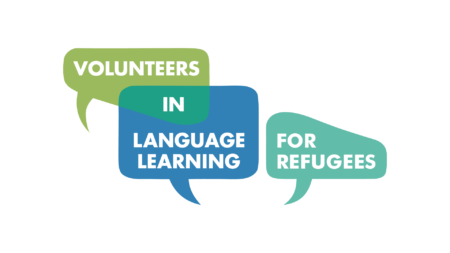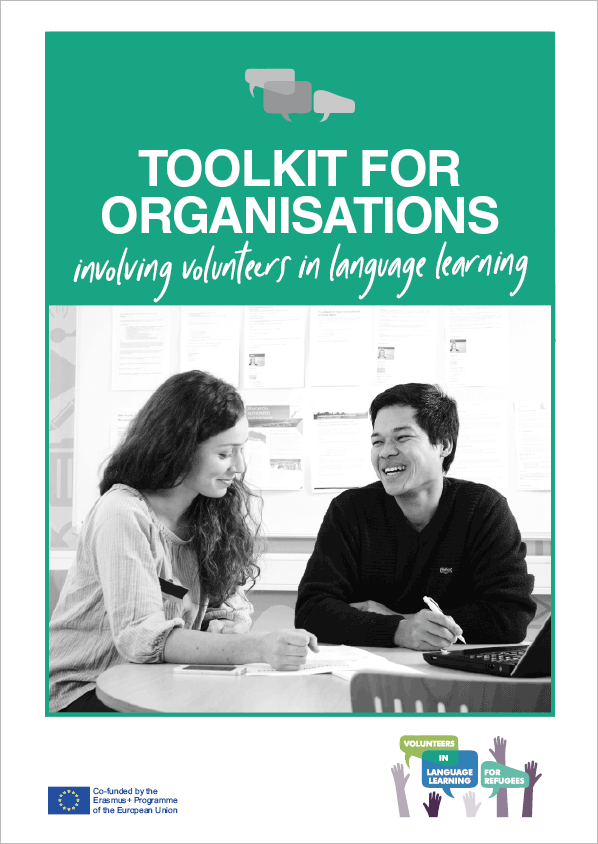For Organisations

Welcome to the toolkit for organisations. This guide is aimed at language teaching organisations that want to work well with volunteers. It’s particularly aimed at organisations working with refugees, but much of the content will be relevant for groups delivering language support to migrants of any kind.
There are many reasons why volunteers can benefit your organisation and improve the language teaching you’re providing. This can be about the support they offer teachers and in this toolkit we explore what suitable, well-managed volunteers can bring to the classroom. Volunteers can also be invaluable beyond formal classroom settings with informal language support of many kinds including conversation cafes and one-to-one buddying. This support outside the classroom is often combined with exploration of shared interests, relationship building and/or the development of other skills for students.
Additionally, volunteers who have a good experience with your organisation can become supporters or advocates for your organisation more broadly. Some organisations interviewed in our research found volunteers later became donors and fundraisers for their work.
In other words, the relationship building that happens when volunteers connect with your organisation can produce unexpected positive results and cross pollinations. It can help embed your organisation more firmly in the community where you work, and in doing so can potentially offer opportunities for your students to link up with more expert language speakers in their area. Volunteers bring their own networks so can also connect students to other institutions, opportunities and groups that will benefit them.
Finally, volunteering can be an important and beneficial experience for the volunteers themselves. At a time of increasing anti-migrant rhetoric and sentiment, the experience of working closely with refugees may strengthen the volunteer’s commitment to working with migrants to defend their rights and improve society more generally.
This said, many of the benefits described above are largely dependent on effective volunteer coordination. This is where this guide comes in. Taking on volunteering does come with risks. We hope that this document will help you navigate them so that both your organisation and your volunteers can benefit from collaboration. The toolkit is mainly
aimed at organisations with sufficient resources to have an appointed volunteer coordinator role (even if this role is not full time). However, we do also include tips for smaller organisations operating on tiny budgets.
Careful selection methods are essential to make sure volunteers are placed according to their skills, capacity and suitability to the roles on offer (see page X). Good communication with teachers will help make sure their needs are met by the volunteers they’re working with – and they know what action to take if problems arise. This toolkit also offers lots of suggestions for how to support your volunteer and help them get the most out of their placement.
We emphasise the potential benefits that volunteers can bring - but not as replacements for properly trained and paid language teachers, who can offer a depth of consistency, professionalism, expertise and commitment and should be remunerated accordingly.
This toolkit has been written by a partnership of five language teaching organisations from across Europe. As well as a first hand experience of delivering teaching and working with volunteers, we’ve spoken to a range of other language teaching organisations across the continent, some of which are featured as case studies in this toolkit. The content of our guide is informed by this research.
“It is our first job to make the students feel noticed in the classroom, and with help from the volunteers it is easier to consider every student and give them a feeling of being paid attention to.”
Teacher, Austria

